How co-working brands are transforming the way businesses work
From global behemoth WeWork to independent spaces catering for the creative community, co-working brands are generating serious attention as flexible working explodes in popularity around the world.
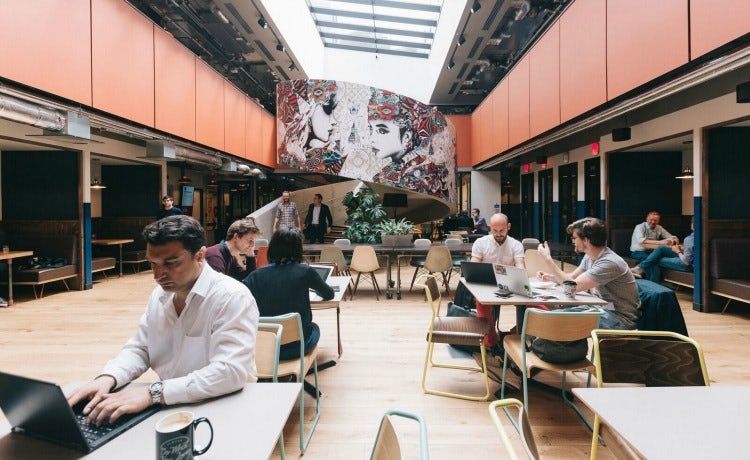
The world of work has changed irrevocably over the past couple of years. The rise of flexible, remote and co-working concepts prove that it is no longer good enough for businesses to locate themselves in oppressive office environments if they want to recruit the best talent and create a culture of productivity.
While the co-working phenomenon began in the wake of the 2008 recession as people found themselves out of work or pursuing freelance opportunities, the sector has risen to prominence thanks in large part to the high-profile success of property startups such as WeWork.
Currently operating across more than 280 locations in over 70 cities worldwide, WeWork is the largest private-sector occupier of office space in central London and the second largest in Manhattan. The co-working space provider currently has 24 locations in London and over 33,000 members across the UK and Ireland.
WeWork is poised to become the world’s second most valuable startup after Uber following a funding round in June valuing the business at $35bn (£27bn). Earlier this month the company also secured a $1bn injection from Japan’s SoftBank to fund overseas expansion, the building of office space and acquisition of new properties.
Sales at WeWork more than doubled in the first quarter of 2018 to $342m, according to reports in the Financial Times, with earnings before tax rocketing 137% to $26m in the three months to the end of March.
WeWork did, however, make a net loss in the first half of 2018 of $723m, a fact the company puts down to a “mismatch” between the amount the company spends renovating a location and the time it takes to open for business.
We deliberately create a canvas that’s there for our resident businesses to make their own, so their identities come to the fore.
Sam Gregory, Fora
Boasting some 256,000 members, WeWork is reportedly attempting to expand its membership from freelancers and entrepreneurs to “enterprise members” – companies with more than 1,000 staff – which currently make up around 25% of its total base. One such member is Citi Bank, which in February moved its London Innovation Lab to WeWork’s site in Moorgate.
Leni Zneimer, WeWork general manager for the UK and Ireland, says the company has observed large businesses taking up the charge for flexible working.
READ MORE: How to address the challenges of flexible working
“When we started out in New York we saw lots of smaller companies and entrepreneurs join our community, and what’s really exciting to see now is all sorts of different companies, from HSBC to Samsung and Barclays to Microsoft, taking space at WeWork. This is actually a big focus for us right now,” she states.
Zneimer explains that WeWork is responding to a need among businesses for the flexibility to quickly upscale or downscale their space, as well as find a base in different countries. Members are, for example, free to move between WeWork’s global locations.
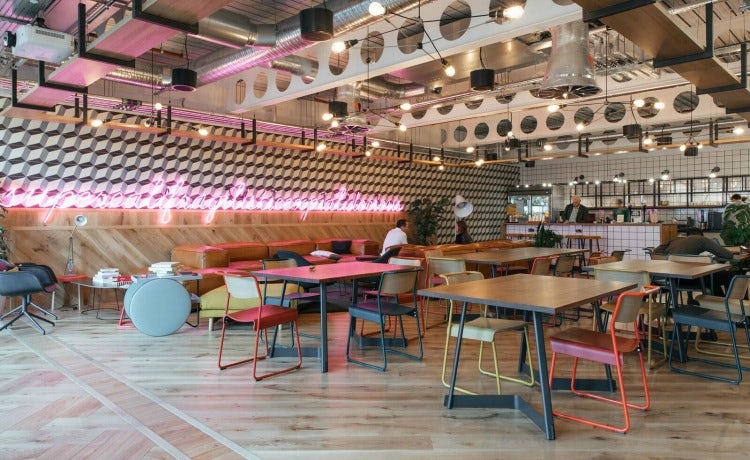
Zneimer describes WeWork not as a co-working space, but as a “community company” focused on encouraging collaboration. The brand believes businesses want to build a sense of community by connecting via its app and taking part in weekly events from Pilates classes to wine tastings.
WeWork claims its community-focused approach is working given 50% of its members have done business together, 70% regularly collaborate and 45% say working from its locations has accelerated their growth.
Carving out a niche
With so many players entering the co-working space it is crucial brands finds a defining feature that helps them stand out from the crowd.
Cal Lee, founder of flexible and co-working space matching service Workthere, describes WeWork as an “extremely ambitious brand” that brought the sector to mass attention. He acknowledges that while WeWork’s initial plan was to give startups and freelancers space to collaborate, the real shift over the past two years has been the bigger businesses getting involved.
A key reason has been talent retention, says Lee. “We began seeing bigger businesess, who are sometimes losing staff to startups or new businesses, think about how they can better engage their own employees and take to co-working for the benefit of their staff.”
He believes the biggest challenge for co-working providers is how to differentiate themselves in a crowded market, meaning they need a strong brand to ensure clients feel an affinity to their business.
“It’s super competitive. The successful ones are often the ones that create some kind of niche, something that makes them slightly different and other people aspire to be part of the that,” Lee explains.
Fora has created a niche by positioning itself at the premium end of the market. The vision is to bring the best premium hotel, serviced office, co-working and members’ club experiences together under one roof.
As the company owns all its own buildings it can work with architects to create a blend of workspace, relaxation areas, cafés, restaurants and bars. Since launching in February 2017, Fora has seen a number of residents expand into larger office space, which head of growth Sam Gregory attributes to the company’s ability to create an environment where businesses feel comfortable scaling.
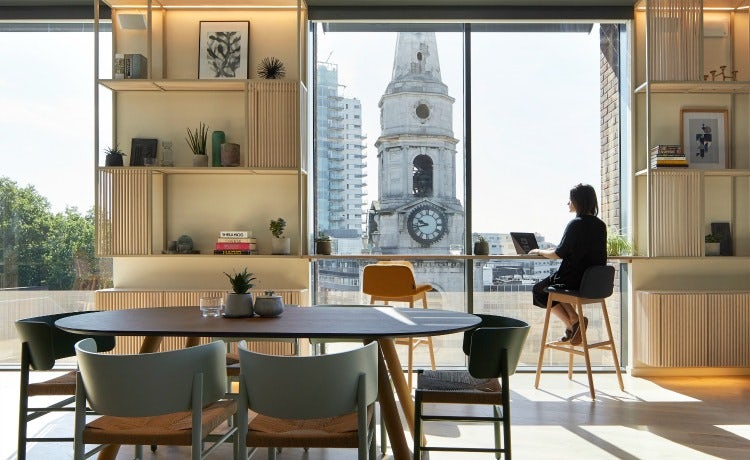
“There are a lot of players in the market and some have very overt brands. At Fora we consider ourselves to have more of a recessive brand. You don’t see our logo plastered all over the walls of the work space, because we deliberately create a canvas that’s there for our resident businesses to make their own, so their identities come to the fore,” Gregory explains.
Fora plans to have 15 locations open by the end of 2020, including branching out from central London to a new site in Reading in September.
Gregory believes it’s no longer enough for companies, irrespective of size, to provide traditional working environments. By creating spaces that are holistically supportive and offer those elements expected, particularly by the younger generation, they will reap the rewards.
“It’s more productive and interesting than being back in just another wing of a headquarters where it’s difficult to find that stimulus and the headspace you need to think differently and challenge the status quo,” he adds.
Fellow flexible and co-working space provider, Workspace, prides itself on the flexibility it offers members across its 69 buildings in London. The business model has two elements. There is office space for businesses that want flexible lease terms in order to up-size, downsize or change location – the majority of its members – alongside a monthly membership co-working concept known as Club Workspace.
The business attracts a mixture of smaller entrepreneurs and large-scale businesses, such as Mozilla, which put its UK headquarters into Workspace’s Southwark site, and the Go-Ahead bus group which has taken a three-year lease with flexibility built in.
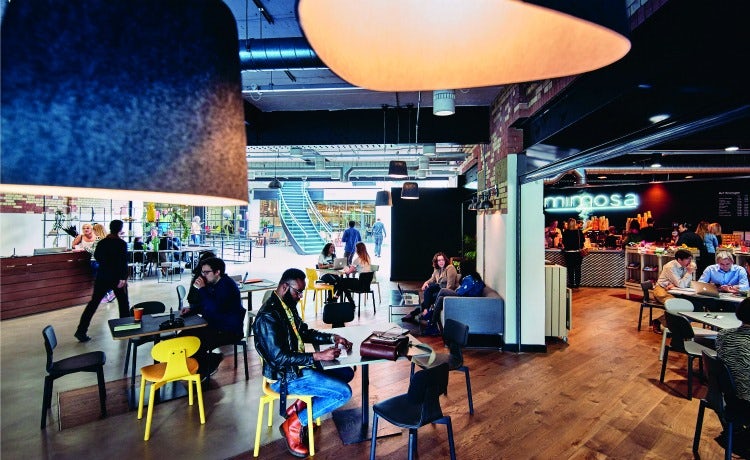
The company puts a big focus on the community element and delivering that through content, such as workshops or its online magazine HomeWork.
“It’s important for us to invest in those resources to be able to add value to the businesses,” explains head of marketing, Anisha Patel.
“We run a business insights event programme where every other month we discuss the hot topics. We will have a panel discussion where we’ll invite all our customer base, whether you’re a club or an office customer. We want to be collaborative and interactive in terms of whatever insight we share.”
READ MORE: Wellbeing and the future of work
Brand creation
Starting out as an independent in the crowded co-working space means having a very clear handle on your brand identity. This is the case for Leyton-based flexible working provider This Time Next Year (TTNY), which opened in April and is the first co-working venture for founder Ciara Lyons.
Knowing that she was going into a saturated market, Lyons wanted to choose a name that was aspirational and would appeal to her target market, the creative industries.
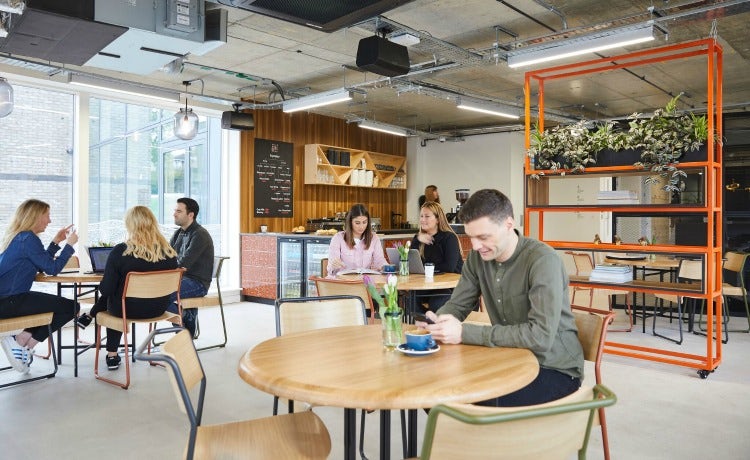
Opting for pink and blue for the logo, Lyons wanted to demonstrate that her co-working space was both fun and a place to get work done, while online the brand aims to strike a playful tone mixed with imagery that gives potential users a feel for the space.
“For us targeted advertising on Twitter, Facebook, LinkedIn and Instagram is key,” Lyons explains. “When we run our own organic social and our paid-for advertising we can see the correlation of those two complementing each other. We’ve definitely found that Instagram is the best performer, because it’s so image led.”
With the explosion of co-working spaces over the past two years Lyons can only see the market going in one direction. This is particularly true as Brexit looms and businesses are looking for flexibility rather than being tied into decade-long leases.
“People won’t want to commit to those long-term contacts, so I think you’ll see not just people who are freelancers or medium-sized businesses, we could see large businesses taking whole floors in these types of spaces,” she suggests.
“You have to ask yourself if that affects the whole ethos of [co-working spaces], but that’s something you have to work out further down the road.”
Not every player in the co-working market is focused on big business though. Kitchin Table is a female-only app that allows women to open up their homes to fellow freelancers. Founder Laila Dupuy’s vision is to democratise co-working by creating hyper-local communities of female freelancers and entrepreneurs based in suburban areas underserved for flexible working.
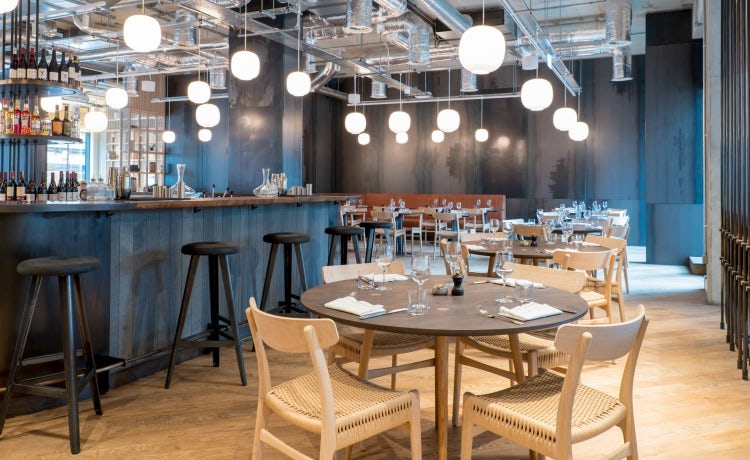
Through Kitchin Table women invite female freelancers living in their area to work from their house, using the app to match with people based in complementary industries.
“There are so many private members’ clubs and everyone was saying you should do Kitchin Table as a members’ club and make people apply, but I want to break down barriers between women,” Dupuy explains.
“I want it to be a global community of likeminded women who are always working together and helping each other out through the app.”
The next phase
As the co-working market starts to mature, new products are being developed at a rapid pace. Last year WeWork launched Powered by We, an “operating system” helping other companies find, build and operate their own space. Companies can tap into WeWork’s software and hardware infrastructure to manage, design and operate their own real estate portfolio.
Another development the market is likely to see is more landlords creating their own co-working brands, according to Workthere’s Cal Lee.
Last year Allied London introduced the All Work & Social brand to its office spaces in Manchester and Leeds, while British Land launched flexible workspace concept Storey, providing office space for companies that have “outgrown co-working spaces”.
Lee sees this shift as a sign of landlords thinking about how to better engage and serve their end customer. Brands will also branch out further into cities and towns like Manchester, Leeds, Bristol and Reading, he says, as well as extending into Europe.
In addition, expect an influx of international brands, from Chinese provider Naked Hub to US brands The Yard and Industrious, looking to claim a slice of the UK market. Co-working is undoubtedly exploding and it’s going global.







